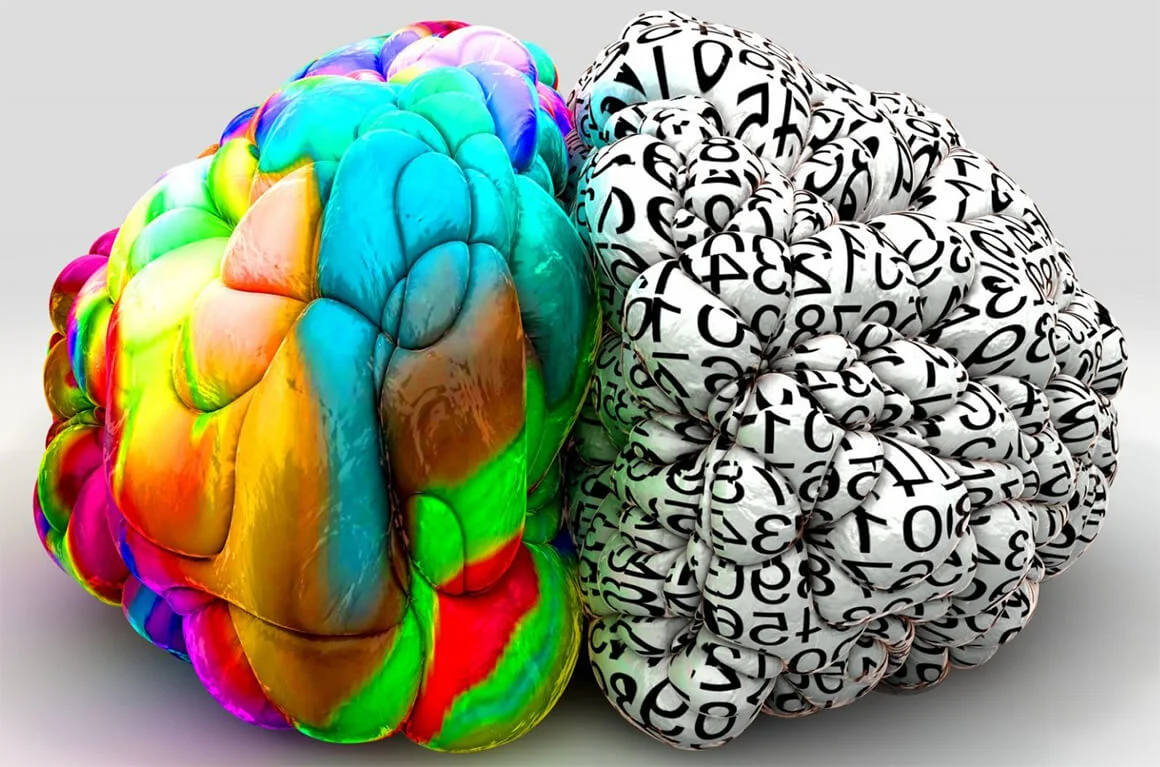Emotional Intelligence (EI) is the ability to understand, control, and express one’s emotions, as well as to understand and respect the emotions of others. Developing this ability helps us become more confident, successful, and happy. However, despite its benefits, not everyone knows how to develop emotional intelligence, which can change life for the better.
Emotional intelligence includes the ability to recognize, analyze and express your feelings, as well as empathy – the ability to perceive and understand the emotional state of others. It means the ability to effectively manage emotions, use them in accordance with a specific situation, and the ability to build healthy and effective relationships with family, friends and colleagues. Developing emotional intelligence helps you improve your quality of life, increase your self-awareness and communication, and achieve success in your personal and professional life.

The importance of developing emotional intelligence
- Improving quality of life. Emotional erudition helps you better understand yourself and your emotions, increases your level of self-awareness and self-esteem. This allows you to improve your overall quality of life.
- Career success. Emotional intelligence is a key component of career success. Emotionally intelligent individuals typically possess higher levels of communication skills, teamwork abilities, and conflict management capabilities, contributing to success in the workplace.
- Improving relationships with other people. Developing emotional intelligence helps you understand and respect other people’s emotions and build deeper, better relationships.
- Stress management. Emotional awareness enables individuals to manage their emotions more effectively and cope better with stress.
- Conflict resolution. Developing emotional intelligence contributes to understanding the motivations of others, enabling quicker and more effective conflict resolution and the ability to find compromises.

How to develop emotional intelligence in an adult?
Developing emotional intelligence is possible through various practical exercises and strategies. Here are some of them:
- Find out your emotions. Start paying attention to your own emotions, try to understand what kind of feelings arise in different situations. Determine which ones help you, which ones hinder you, and which ones you can control.
- Practice mindfulness – the ability to focus on the present moment, without judgment or evaluation. To do this, simply sit in complete silence several times a day, doing something simple or practicing deep breathing.
- Develop empathy. Empathy is the ability to understand and feel the emotions of others. Try to learn to look at the world through the eyes of other people, imagining how you would feel in their place.
- Improve your communication skills. Learn to listen actively, ask questions, and express your thoughts and feelings clearly and constructively.
- Manage your own emotions. Try to develop the ability to manage your emotions. Techniques that can help you with this include breathing exercises, meditation, and self-soothing practices.
- Increase your self-esteem. Good self-esteem allows you to understand your strengths and accept your shortcomings. Don’t forget about your own achievements and positive qualities. Try to multiply them.
- Learn new skills. Although it takes time and constant development, certain skills, such as time management, planning and problem solving, will eventually help you manage your feelings in different situations.
- Work on social competence – the ability to interact effectively with other people. Learn to read nonverbal cues such as gestures and facial expressions, and try to adapt to the needs of others.
- Try to forgive more often. The ability to forgive helps you let go of negative emotions and begin to move forward. Try to accept rather than criticize your mistakes and the mistakes of other people.
- Find balance. Emotional intelligence involves the ability to find a balance between emotions and logic. Try to learn to rationally assess life situations, as well as manage your emotions without suppressing them.

How to develop emotional intelligence in a teenager?
Developing your teen’s emotional intelligence (EI) will help them better understand themselves, manage their emotions, communicate with others, solve problems, and create healthier relationships. Do you want to contribute to this? Here’s what you can do:
- Talk to your teen about emotions. Try to create an open and supportive atmosphere in which your teen can talk about their feelings and experiences. Help him name his emotions, reveal and understand their origins.
- Teach your teenager skills to manage emotions. Show him how feelings affect behavior and teach him skills to manage emotions. For example, you can teach your teen breathing, meditation, and visualization techniques to help them relax and cope with emotional negativity.
- Ask your teenager about his feelings and experiences. Help young people develop empathy and understanding of others by asking them what they think strangers are feeling and why. This will allow the boy or girl to see the world through the eyes of others and develop their social and interpersonal competence.
- Teach your child problem-solving skills. Teach him to look for alternative solutions and think about the consequences of his actions.
- Create an environment where your teen can practice their skills. Help him find a hobby that will help him manage his emotions and develop social skills. For example, this could be sports, dancing, theater studio or volunteer activities.
- Encourage your teen to express his feelings. Appreciate and support the minor when he openly shares his feelings and emotions, and do not criticize him for them. This will help him become more confident.
- Teach your teenager to listen to other people and respect their feelings. Help develop empathy and teach him to listen to other people, even if their opinions differ from his own.
- Help your teenager increase self-esteem. Support him when he does something good.
- Teach him stress management skills. Learn to cope with stress in ways such as physical activity, social interaction, meditation and deep relaxation.
- Help your teenager find a balance between emotions and logical thinking. Teach him to evaluate the situation before making a decision, and teach him to analyze the consequences of his behavior.
It is important to understand that developing emotional intelligence is a process that takes time and effort. So help young people learn to manage their emotions and communicate with others by supporting them in this process.

How to develop emotional intelligence in a child?
The development of emotional intelligence in children is an important task for parents and teachers. Here are some tips to help you in this matter:
- Teach your child to recognize his emotions. Discuss with him the names of the emotions he experiences. For example, when your child cries, you can say, “You’re sad. That’s normal.” This way you will help your baby understand exactly what he is feeling.
- Maintain an emotional connection with your child. Spend time with him, listen to him, take care of his needs. This will help your child develop self-confidence and a sense of security, which is an important foundation for the development of emotional intelligence.
- Teach your child to understand the emotions of other people. Discuss with your child the feelings that others are experiencing and the reasons why they may have these feelings. Ask your child to put himself in other people’s shoes and imagine how he would feel in a given situation.
- Teach your child to resolve conflicts. Teach him to respectfully communicate with other people and find compromises in conflict situations. This will help the baby strengthen their relationships with others and improve their social adaptation skills.
- Develop children’s empathy. Teach your son or daughter to show care and compassion for other people.
- Teach your offspring to regulate his feelings. Help him find ways to relax and relieve stress when he feels overwhelmed with emotions. This could be breathing exercises, meditation, sports, etc.
- Be an example. A child learns a lot from watching adults, so it is important to show emotional maturity and regulate your emotions in the presence of a child.
- Stimulate creativity. Creative activities such as drawing, sculpture, music, theater help the child express his emotions and learn to regulate them.
- Create conditions for the development of social skills. Organize children’s games and activities that will promote the development of social adaptation, interaction and communication with other children.
- Don’t hesitate to ask for help. If you have difficulties in developing emotional intelligence in a child, do not hesitate to contact specialists: teachers, psychologists, psychotherapists. They will help identify problems and offer specific recommendations and techniques for developing EI in a child.

The influence of thoughts on emotions
Thoughts and emotions are interconnected and influence each other. Our thoughts can cause emotions, and emotions can influence thoughts.
When we think about a situation or event, our brain automatically begins to analyze this information and form judgments about it. Thoughts can be positive or negative, but both have an impact on our feelings. For example, if we think about something pleasant, we may feel joy, delight, or satisfaction. If we think about something scary or disturbing, we may feel fear, anxiety or sadness.
Emotions also affect our thoughts. If we feel a strong emotion, it can cloud our ability to think rationally and we may begin to doubt ourselves or our abilities. For example, when we experience extreme anxiety, we may begin to think about worst-case scenarios and see the world in dark terms.
There are various strategies you can use to change your thinking and improve your emotional states. For example, you can try to re-evaluate your negative thoughts by replacing them with more positive or realistic ones. Also in this case, meditation, visualization or other relaxation methods that reduce stress and anxiety are helpful.
One effective method for changing thinking and improving emotional well-being is cognitive behavioral therapy (CBT), which helps people change the negative thoughts that make them anxious or depressed into healthier, more positive ones. CBT also teaches people to use various emotion regulation strategies, such as deep breathing, meditation, and many others.
Overall, understanding the connection between thoughts and emotions can help us better manage our feelings and achieve a more balanced state. If we learn to be aware of our thoughts and their impact on emotions, we can better control our thinking and, accordingly, improve our psychological health.

Basic techniques for getting rid of negative emotions
There are many techniques that can help you get rid of negative emotions and increase your emotional well-being. Here are the most effective of them:
- Meditation and mindfulness practices that reduce anxiety and stress levels, and improve mood and overall emotional well-being. You can try different types of meditation such as transcendental meditation, yoga meditation and others.
- Breathing exercises can also help reduce stress and anxiety, plus improve sleep and increase your overall sense of well-being. Simple exercises such as deep or held breathing can be helpful in relieving tension and calming you down.
- Physical exercises boost mood. Therefore, regular physical activity such as running, walking, yoga, dancing and other sports can improve your overall emotional state.
- Social support from loved ones reduces anxiety, depression and other negative emotions. Talking to friends, family, colleagues or participating in support groups can help relieve stress and improve your mood.
- Art therapy, such as painting, drawing, sculpting, music or dancing, promotes the expression of feelings, which in turn helps relieve negative emotions.
These techniques allow you to independently cope with negativity and improve your emotional state. However, if negative emotions do not disappear and interfere with normal life, you need to seek help from a professional psychologist.
To work with negative experiences and stress, psychologists use various approaches and methods, such as cognitive behavioral therapy, psychodynamic therapy, Gestalt therapy, art therapy and many others. They help patients understand the sources and mechanisms of their negative feelings, as well as learn ways to manage and eliminate them.
It is important to understand that negative emotions are a natural part of human life and that they cannot be completely avoided. However, working on managing emotions can help improve your quality of life and increase your level of emotional well-being.

How to increase the number of positive emotions?
Increasing the number of positive emotions can be achieved in various ways. Here are some of them:
- Gratitude Practice. Every day, think of three things for which you are grateful. This will help you see good things in your life and attract more positive emotions.
- Regular exercise. Exercise increases energy levels and improves your mood.
- Communication with loved ones. Spend more time with people who love and support you, do things together, or just chat. Confidential communication helps you feel happier.
- Hobby. Find a hobby that you enjoy and devote time to it. This will allow you to relax, enjoy your hobby and gain satisfaction from your achievements.
- Meditation, yoga and relaxation increase levels of mental and emotional stability. You can try various relaxation methods such as breathing exercises, massage, etc.
- Improved nutrition. Eating nutritious and tasty foods lifts your mood and increases the body’s energy potential.
- Travel and adventure. New places, meeting new people and adventures help expand your horizons and bring more positive emotions to life.
- Laughter and humor relieve stress and improve your mood. Watch a comedy show or movie, chat with funny friends who can make you laugh out loud.
- Sleep and rest. Lack of sleep can lead to poor mood and increased stress levels. Try to get enough hours of sleep each night and get plenty of rest during the day.
- Positive thoughts and self-hypnosis. Learn to replace negative thoughts with positive ones using self-hypnosis, which helps you manage your emotions and attract more positive perceptions.
- Helping others improves your mood and increases your self-esteem. Volunteering or simply helping friends, family, colleagues can make you fulfilled and happy.
- Limit the use of social networks. Oddly enough, but everyday viewing of social networks provokes negative emotions. And this is a proven fact. Try to limit the time you spend on social media and make sure you only use it for positive and uplifting interactions.
- Compliments to others. This will lead to an increase in the level of positive emotions both in you and in other people.
- Communicating with pets or helping to volunteer in animal shelters improves your mood significantly.

Ways to develop social empathy
Social empathy is the ability to understand and feel the emotions, experiences and needs of other people. Here are some specific ways to help you develop emotional understanding of others:
- Listen to people and try to understand their point of view. Be aware of the environment you come into contact with. Ask questions to better understand the thoughts, feelings, and needs of others.
- Connect with people of different ages, genders, and cultures to gain a better understanding of the diversity of experiences and life experiences of others.
- Improve your communication culture by being polite, respectful, and sensitive in your interactions with others.
- Develop your ability to feel empathy. Try to imagine yourself in the other person’s shoes and understand how they feel.
- Help other people, especially those who need your help. This will allow you to understand the feelings of the person in need and see the world through his eyes.
- Read books and articles about empathy and social psychology. They will help you see how people interact with each other and what emotions they experience.
- Attend events where you can network and learn to understand other points of view. For example, these could be cultural events, meetings with friends or professional seminars.
- Study nonverbal communication. Gestures, facial expressions and tone of voice convey a lot of interesting information about a person’s feelings and thoughts.
- Practice engaging in activities with others. Working in a team or participating in activities develops respect for the opinions and needs of others.
- Teach others. When you help other people understand something, it allows you to better understand their point of view and needs.
- Watch movies and TV shows that address social issues. This way you will find out what problems people care about and how they react to them.
- Learn foreign languages and cultures. This will help you better understand the traditions of foreigners and communicate better with them.
- Try to understand people who are different from you in age, status, culture or religion to develop social empathy.

How to learn to recognize other people’s emotions?
There are several exercises that can help you learn to recognize other people’s emotions. Here are some of them:
- Watching videos with emotional context. Today you can easily find videos that demonstrate various emotions, such as joy, anger, sadness, surprise, fear, etc. Watch them and try to recognize the feelings that the actors express.
- Communication with other people. During the conversation, pay attention to the speaker’s tone, gestures, facial expressions and other signs that indicate their emotional state. Try to empathize, put yourself in the shoes of your interlocutors, try to understand how they feel now.
- Studying literature. Books and articles on psychology, emotional intelligence, and other psychological sciences will help you learn more about how feelings work and how to recognize them correctly.
- Understanding your own emotions. If you learn to understand your own emotions, it will be easier for you to see them in other people. Pay attention to your feelings and reactions to different situations.
- Regular practice. Accurately identifying the emotions of others is a skill that takes practice. Try to pay attention to the emotional state of other people every day.
- Using emotional cards. These are special diagrams that help identify and classify different emotions. Use them to practice recognizing other people’s feelings.
- Learning by examples. You can learn to recognize emotions by observing those who have already mastered this skill well. Pay attention to how they communicate with others, how they interpret nonverbal cues, and how they express their own feelings.
- Help from a psychologist or trainer. A psychologist or trainer will teach you to understand the emotional state of others and give you a number of practical tips on how to improve this ability.
- Defining the context. Often the emotions that others experience are related to a specific situation or context. Try to understand what is happening at the moment and how it affects the person’s emotional state.
- Introspection. Assess your ability to empathize and recognize the feelings of others. You can write down your thoughts in a journal or discuss it with friends and family. This way you can identify your strengths and weaknesses and identify areas that need more work.

How to become an active listener?
Being an active listener means listening carefully to what is being said and understanding the other person’s point of view and emotional state. Here are some tips to help you become a more active listener:
- Focus on the other person and stay in the moment. Don’t think about how you will respond or get distracted by other thoughts. Just focus on the conversation.
- Show your attentiveness. Maintain eye contact, smile and nod your head to show that you are listening and understand.
- Confirm understanding. Repeat the key words and phrases that the interlocutor said and express your understanding of his point of view.
- Don’t interrupt the communicator, even if you do not agree with what you heard. Let him finish his thought, and then express yours.
- Ask clarifying questions to show your interest in the conversation.
- Show empathy. Try to put yourself in the shoes of your dialogue partner and show empathy for his feelings and emotional state.
- Avoid paraphrasing. Don’t try to paraphrase the other person’s words, as this may change their true meaning.
- Be patient. Don’t rush the person you are talking to, give him time to speak, and do not evade the topic, even if it is not interesting to you.
- Don’t insult or criticize. Avoid criticizing, judging or insulting the other person, as this may prevent him from expressing his thoughts.
- Don’t be shy about asking for a repeat. If you didn’t hear or understand something, ask the person to repeat his words.
- Don’t give advice unless asked. If the person you’re talking to doesn’t ask for advice, don’t give it without permission.
- Thank person for the conversation. At the end of the conversation, tell the person thank you for his time.

How to offer someone emotional support?
- Listen. Simply listen to what the person is saying. Try to understand their feelings and experiences without interrupting or offering advice.
- Show empathy. For example, you can say something like “I’m really sorry you’re going through this, I can only imagine how difficult it must be for you.”
- Offer assistance. If you can help in any specific way, offer your assistance. However, remember to respect their boundaries and not insist on help if they don’t want it.
- Encourage. Sometimes people need to hear words of encouragement to keep their spirits up. For example, you can say “You can get through this” or “I believe in you.”
- Be there. Even your presence alone can provide significant support. If someone is going through a tough time, just stay with them. You can sit beside them, hold their hand, or give them a hug.
Conclusion
In the modern world, where success depends not only on our knowledge and skills but also on our ability to manage our emotions and understand the emotions of others, developing emotional intelligence is critically important.
Personal and professional success are related to how we communicate, solve problems, manage our emotions and interact with others. Developing emotional intelligence allows us to become more effective and successful in these areas.
People with developed EI have a better understanding of themselves and others, can more effectively manage their emotions and behavior, improve their communication skills, increase motivation and productivity, and improve relationships with other people.
Developing emotional intelligence not only contributes to our personal growth and happiness, but can also have a significant impact on our professional success and career. Therefore, it is important to strive to develop your EI in order to achieve greater success and happiness in life.

10 facts about developing emotional intelligence
- EI develops throughout a person’s life. During childhood, children learn to express their emotions, and during adolescence, they learn to control them. Adults can continue to develop their EI by learning social competence and emotion regulation.
- Some studies show that people with high levels of emotional intelligence have healthier relationships, better motivation, and higher productivity at work.
- EI can be developed through education and training. There are various training methods, such as courses on managing emotions and improving social skills.
- There are different models and theories that describe the components of emotional intelligence. For example, Daniel Goleman’s model includes components of self-awareness, self-management, social awareness, relationship management, and motivation.
- Developing EI reduces stress levels and improves psychological well-being. People who know how to manage their emotions cope better with difficulties in life.
- Emotional intelligence is also linked to physical health. People with high levels of EI have relatively low levels of inflammation in the body.
- Some studies show that early cultivation of emotional intelligence in childhood can reduce the likelihood of developing behavioral problems, social adaptation issues, and mental disorders.
- Developing EI improves communication and interaction with other people. People with high levels of emotional intelligence better understand the feelings and needs of other people and can manage conflict situations more effectively.
- Although EI is not a formal subject of study in schools and universities, some educational institutions offer courses on emotion management and social skills development.
- There are different methods for measuring EI levels, such as tests, questionnaires and interviews. One of the most well-known tests is the paid Emotional Quotient Inventory (EQ-i) test, developed by Multi-Health Systems Inc. It measures various aspects of emotional intelligence such as self-awareness, social responsibility, relationship management, etc. The test can be taken at one of the official centers that are certified to conduct EQ-i assessments.




